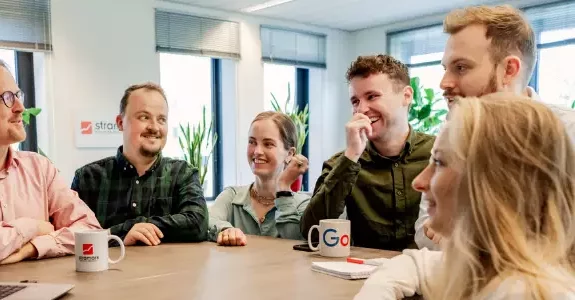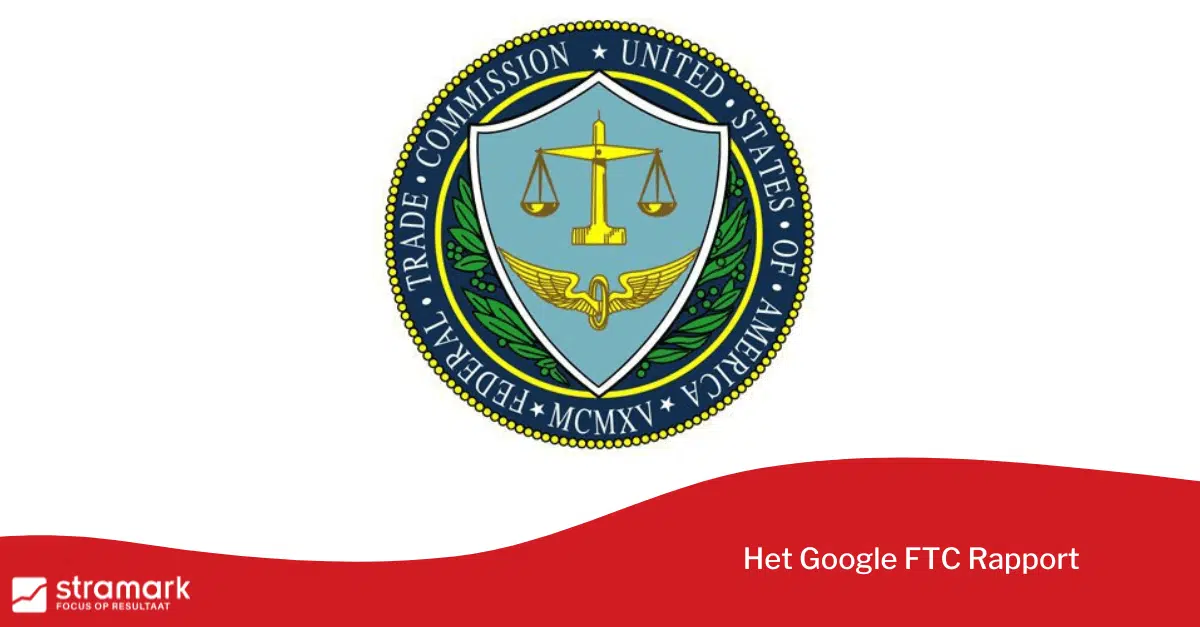Google ligt vaak onder vuur door de Europeese commissie en de Amerikaanse FTC. Recent is 50% van een zeer uitgebreid rapport uitgelekt. Danny Sullivan heeft op twitter @dannysullivan het hele document gelezen en alle opmerkelijke stukken voorzien van commentaar. Omdat een Twitter timeline niet zo makkelijk leesbaar is heb ik deze hieronder bij elkaar gezet.
Het FTC rapport geeft inzicht in hoe Google met haar concurrenten omgaat. Soms zijn die concurrenten gewoon websites die een waardevolle dienst leveren aan consumenten en hiervoor afhankelijk zijn van google. Google ziet dan in dat ze hoeveelheden zoekopdrachten missen en kiezen er dan op subtiele of niet zo subtiele wijze voor om deze partijen lager in de rankings te zetten ten opzichte van hun eigen resultaten. Of hun eigen resultaten te verhogen in de rankings.
o.a. wordt besproken:
- Google shopping
- Lokale resultaten
- Omgang met Yelp
- Omgang met Bing
- Verhalen over Google+
- Verhalen over Facebook
- De rol van CTR als kwaliteits instrument
- Hoe de omvang van Google helpt bij testen
- De rol van Amazon listings en producten in google shopping
Reading through FTC staff report on Google antitrust investigation, the FTC should have released all of this http://t.co/SgOF6L9qer
— Danny Sullivan (@dannysullivan) 25 maart 2015
The FTC & EU have closely shared info on investigating Google on antitrust issues http://t.co/SgOF6L9qer pic.twitter.com/0dmWam1rdp — Danny Sullivan (@dannysullivan) 25 maart 2015
Facebook may have raised antitrust concerns Google+ results came ahead of Facebook. See also http://t.co/njYO4H9fOB
— Danny Sullivan (@dannysullivan) 25 maart 2015
Google confirms watching clicks to evaluate results quality. FYI Google still won’t say if clicks used as rank signal — Danny Sullivan (@dannysullivan) 25 maart 2015
Scale comes up as issue for improving search. FYI Microsoft has far more scale than when Google started; has plenty
— Danny Sullivan (@dannysullivan) 25 maart 2015
More on scale & results. Google says at some point you have plenty; Microsoft agrees but unclear if has enough yet — Danny Sullivan (@dannysullivan) 25 maart 2015
FTC staff found it a “close call” if Google violated antitrust laws with vertical search but decided it didn’t
— Danny Sullivan (@dannysullivan) 25 maart 2015
Google sounded pretty paranoid that aggregators would develop vertical search properties & leave it weak — Danny Sullivan (@dannysullivan) 25 maart 2015
Fascinating footnotes cite internal Google emails about the vertical threat, from FTC report
— Danny Sullivan (@dannysullivan) 25 maart 2015
Google pushed own vertical listings via Universal Search not just to give better answers but to boost its verticals — Danny Sullivan (@dannysullivan) 25 maart 2015
Footnote covering mandate from Larry Page that Google should be #1 in verticals
— Danny Sullivan (@dannysullivan) 25 maart 2015
Important internal Google email arguing that the best answer shouldn’t always be a web page but maybe local or other> — Danny Sullivan (@dannysullivan) 25 maart 2015
Why’s Google pushing vertical search & direct answers? Blame Bing. Email on Bing “decision engine” pitch as worry
— Danny Sullivan (@dannysullivan) 25 maart 2015
Smoking gun on why Google made product search pay for play. Putting free product listings at top cost ad revenue — Danny Sullivan (@dannysullivan) 25 maart 2015
FYI, Google going pay for play in shopping search was HUGE reversal http://t.co/qr2k6D5yzL positioned as user benefit http://t.co/H2BJpdMDHK
— Danny Sullivan (@dannysullivan) 25 maart 2015
A signal why Google might decide to show its own vertical results? If a competitor was in its listings — Danny Sullivan (@dannysullivan) 25 maart 2015
Footnote details Google using “blessed sites” (IE competitors) to determine if should show its own vertical results
— Danny Sullivan (@dannysullivan) 25 maart 2015
Awesome footnote on internal debate to demote Google Product Search to improve search quality & ad revenue — Danny Sullivan (@dannysullivan) 25 maart 2015
Get to know a Google algo: “Aggressive Demotion to Middle for Product Universal”
— Danny Sullivan (@dannysullivan) 25 maart 2015
FTC staff blames Google for poor SEO of verticals, not realizing SEOs yelled if Google took web listings for them — Danny Sullivan (@dannysullivan) 25 maart 2015
Putting Google Product Search directly in main web results boosted it from 7th to 1st in pageviews in one year
— Danny Sullivan (@dannysullivan) 25 maart 2015
Google demoted competing shopping sites for results “diversity” http://t.co/W6REeHJ8vF & calculated their losses — Danny Sullivan (@dannysullivan) 25 maart 2015
Google wrote of taking traffic from other shopping sites despite results with “pretty terribly embarrassing failures”
— Danny Sullivan (@dannysullivan) 25 maart 2015
How much the Google Panda algorithm http://t.co/vDA4PBaV6X hurt some shopping sites, which in turn hurt Amazon — Danny Sullivan (@dannysullivan) 25 maart 2015
You might be a scaper site if you’ve authored less than 15% of your content. At least, was once Google’s definition
— Danny Sullivan (@dannysullivan) 25 maart 2015
Google search results are likely less than 15% original content, which brings up this classic tweet from @danbarker https://t.co/uWVQln8z4H — Danny Sullivan (@dannysullivan) 25 maart 2015
Google, which complained about Bing scraping its results for rankings, scraped Amazon to help rank product search.
— Danny Sullivan (@dannysullivan) 25 maart 2015
Google Local managers said please, buy us Yelp. But Yelp said no, so Google went the build it ourselves route — Danny Sullivan (@dannysullivan) 25 maart 2015
Google email confirms it was Yelp that walked away from purchase. There was some uncertainty:
— Danny Sullivan (@dannysullivan) 25 maart 2015
When Google tried to do own local, Yelp asked for its reviews to be removed. Google did this but saw its product fail — Danny Sullivan (@dannysullivan) 25 maart 2015
Emails covering Google agreeing to drop Yelp & Google concerns that it couldn’t do local without them coming true
— Danny Sullivan (@dannysullivan) 25 maart 2015
Amazing quote from someone at Google worried Facebook, Twitter & Yelp would become the sites for local — Danny Sullivan (@dannysullivan) 25 maart 2015
To get needed local reviews, Google made “policy decision” that if not provided, local sites dropped from web search
— Danny Sullivan (@dannysullivan) 25 maart 2015
Footnote suggests some at Google thought review sites should be able to opt-out of inclusion of local but not web — Danny Sullivan (@dannysullivan) 25 maart 2015
Amazon gave Google limited feed to protect against Google building competitor. So Google crawled to get more
— Danny Sullivan (@dannysullivan) 25 maart 2015
Amazon gave Google limited feed to protect against Google building competitor. So Google crawled to get more — Danny Sullivan (@dannysullivan) 25 maart 2015
As of 2012, Google apparently still relied on scraping Amazon data to rank products within its own Google Shopping
— Danny Sullivan (@dannysullivan) 25 maart 2015
As of 2012, Google apparently still relied on scraping Amazon data to rank products within its own Google Shopping — Danny Sullivan (@dannysullivan) 25 maart 2015
Amazon email to Google to stop using its content in Google Shopping http://t.co/SgOF6L9qer
— Danny Sullivan (@dannysullivan) 25 maart 2015
FTC Staff: Google scraping competitors to patch weaknesses harmful because competitors have little reason to invest — Danny Sullivan (@dannysullivan) 25 maart 2015
By restricting AdWords API, Google helped block clients from building tools that would work with other paid search
— Danny Sullivan (@dannysullivan) 25 maart 2015
Microsoft seemed to claim its advertisers didn’t optimize campaigns much because of Google somehow but gave no proof — Danny Sullivan (@dannysullivan) 25 maart 2015
2007 email where Google says opening up so advertisers could easily buy Google & others would boost CPC for others <
— Danny Sullivan (@dannysullivan) 25 maart 2015
FTC staff believes idea more advertisers means higher CPCs. Shh, let’s not mention those dropping CPCs Google having — Danny Sullivan (@dannysullivan) 25 maart 2015
Googler in 2009: “Better for customers & industry” to drop AdWords API restrictions. Larry Page said no, it seems
— Danny Sullivan (@dannysullivan) 25 maart 2015
Just 10 web sites generated almost 80% of Google AdSense revenues in 2011, FTC report reveals
— Danny Sullivan (@dannysullivan) 25 maart 2015
Amazon, Best Buy, ISPs seem to be among the biggest search partners for Google, at least in 2012
— Danny Sullivan (@dannysullivan) 25 maart 2015
Woes of Bing trying to win search partners: seen as inferior, where you go if Google kicks you out, doesn’t call back
— Danny Sullivan (@dannysullivan) 25 maart 2015
Some have exclusive search deals with Google; some don’t & wouldn’t use others for various reasons
— Danny Sullivan (@dannysullivan) 25 maart 2015
Amazon made $175 million off search deals in 2011, it seems, $169 million of that from Google
— Danny Sullivan (@dannysullivan) 25 maart 2015
All this work to push verticals, but Eric Schmidt didn’t name any verticals as chief competitors to the FTC staff
— Danny Sullivan (@dannysullivan) 25 maart 2015
Even Google doesn’t know what market share figures to believe. Brin says he mainly looks for trends
— Danny Sullivan (@dannysullivan) 25 maart 2015
When Chevrolet closed paid search for two weeks & went display only, it lost 30% of clicks to its site
— Danny Sullivan (@dannysullivan) 25 maart 2015
Google’s Brin & Schmidt testifying that search ads rule over display. Shh, don’t tell the brands
— Danny Sullivan (@dannysullivan) 25 maart 2015
FTC discovers advertisers can’t easily answer what would you do if Google upped rate card because don’t work that way
— Danny Sullivan (@dannysullivan) 25 maart 2015
FTC can’t make Yahoo’s reported search volume match comScore, “phantom” searches when hovering over words an issue?
— Danny Sullivan (@dannysullivan) 25 maart 2015
Bing cost Microsoft $4.5 billion, the FTC says. They says that’s for 2010, but I think they mean spend to that point
— Danny Sullivan (@dannysullivan) 25 maart 2015
The FTC sure seems to think clickthrough rate is a component of Google’s ranking algorithm
— Danny Sullivan (@dannysullivan) 25 maart 2015
Brin explaining why you don’t want to do a search that take you to a search (and he’s right)
— Danny Sullivan (@dannysullivan) 25 maart 2015
But Google didn’t give any evidence users don’t want to search to click to more search, so FTC wasn’t buying it
— Danny Sullivan (@dannysullivan) 25 maart 2015
FTC staff summarizes that with vertical search, Google’s been both good & bad – but not bad enough for action
— Danny Sullivan (@dannysullivan) 25 maart 2015
On scraping, FTC staff wanted action taken. Settlement solved this. But Google should have allowed opt-out earlier
— Danny Sullivan (@dannysullivan) 25 maart 2015
Important section on Google using monopoly power to threaten vertical publishers to cooperate on sharing reviews
— Danny Sullivan (@dannysullivan) 25 maart 2015
FTC staff finding restricting the AdWords API to be noncompetitive — another issue resolved by the settlement
— Danny Sullivan (@dannysullivan) 25 maart 2015
Google on why it’s better to earn little or nothing & grow AOL versus letting Bing power it
— Danny Sullivan (@dannysullivan) 25 maart 2015
Amazon throws Bing some queries even though it loses money as what I’d call “Google insurance”
— Danny Sullivan (@dannysullivan) 25 maart 2015
FTC staff wanted exclusive search deals dealt with; never came up in the settlement at all
— Danny Sullivan (@dannysullivan) 25 maart 2015
FTC staff outlines the strongest challenges Google might (have) raised in antitrust litigation
— Danny Sullivan (@dannysullivan) 25 maart 2015
Conclusion! FTC staff recaps three areas it sought antitrust action against Google; two issues ultimately resolved
— Danny Sullivan (@dannysullivan) 25 maart 2015
Thanks for hanging in there with the tweetstorm as I went through the FTC Google antitrust document. FYI, it’s here http://t.co/SgOF6L9qer
— Danny Sullivan (@dannysullivan) 25 maart 2015
As a reminder, the FTC did settle with Google after the investigation was done. You’ll find more about that here: http://t.co/9GgRHoZ6Jp
— Danny Sullivan (@dannysullivan) 25 maart 2015
Highlights Of The FTC Staff Report On Google & Antitrust Issues http://t.co/oxhxwfym61 is a recap of all I tweeted tonight
— Danny Sullivan (@dannysullivan) 25 maart 2015


Reacties